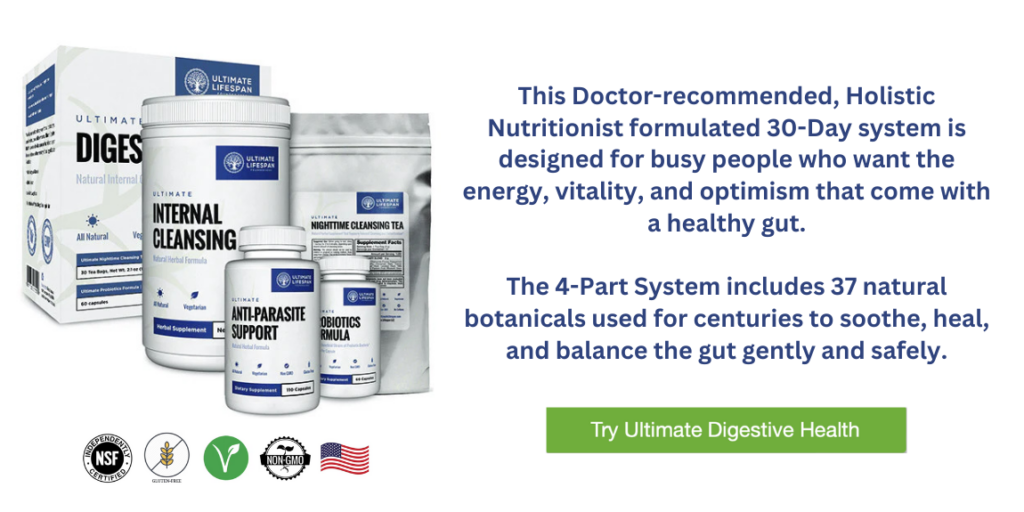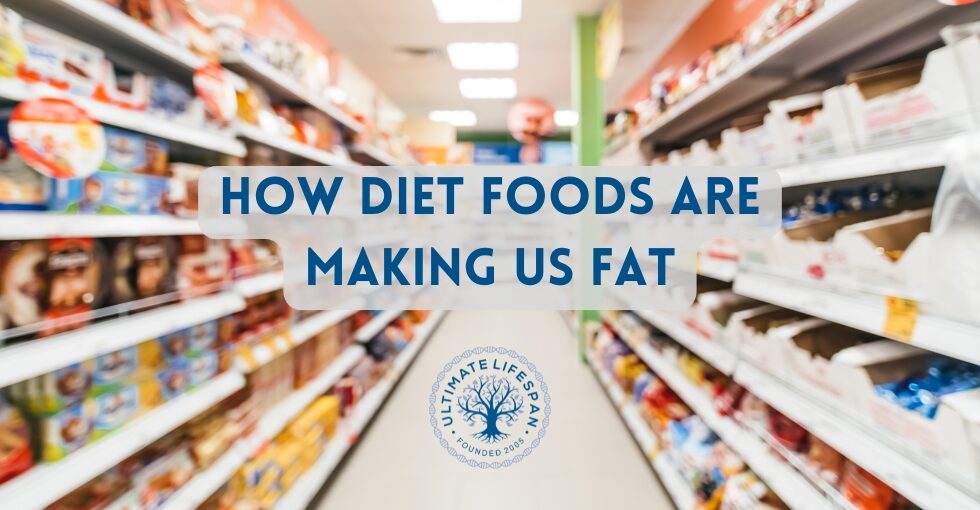The Dark Side of Diet Foods: How “Healthy” Choices Are Killing Us Softly
Chronic diseases are on the rise in the United States, with startling statistics painting a grim picture of public health. According to the CDC, six in ten adults in the U.S. have a chronic disease, and four in ten have two or more. Conditions such as obesity, diabetes, heart disease, and cancer are now among the leading causes of death and disability, costing the healthcare system billions annually. Poor nutrition, driven in large part by the prevalence of processed and diet foods, is a significant contributing factor to this crisis. So significant, that 9 out of 10 diseases could be eliminated if people started eating like humans.
For decades, we’ve been bombarded with advice from so-called “experts” urging us to swap our traditional diets for low-calorie, low-fat, and low-sugar alternatives. These products promise weight loss, better health, and even longevity. Yet, here we are, sicker and heavier than ever. The truth? Diet food is a wolf in sheep’s clothing—nutrient-poor, laden with harmful artificial ingredients, and a significant contributor to our modern health crises. Let’s unpack the damage.
The Nutritional Illusion: Calories vs. Nutrition
Modern diet foods represent a fundamental misunderstanding of human nutrition. By focusing solely on calorie reduction, we've created a generation of nutrient-depleted, metabolically damaged individuals. Researchers have discovered that the average diet food contains up to 50% more artificial additives than whole food alternatives. These products can trigger the same addictive brain responses as processed sugar while stripping away the crucial nutrients our bodies desperately need.
Our biological systems require approximately 40 different nutrients for optimal functioning, most of which are eliminated during diet food manufacturing. These include vitamins, minerals, amino acids, fatty acids, and other vital compounds. Each nutrient plays a unique role in supporting growth, energy production, immune defense, and overall health. When we rely on diet foods that are nutrient-poor, we deprive our bodies of these building blocks, leading to imbalances, cravings, and chronic health issues. Foods labeled as “diet” are by definition ultra processed foods.
The Biochemical Betrayal of Artificial Ingredients
Artificial sweeteners aren't just harmless sugar substitutes—they're metabolic disruptors that wreak havoc on our internal systems. Extensive research has uncovered alarming connections between these chemical compounds and devastating health outcomes. Aspartame and sucralose have been linked to altered gut microbiome composition, increased insulin resistance, and potential neurological inflammation. Perhaps most concerning is a groundbreaking population based prospective cohort study in France published in BMJ, which revealed that regular consumption of artificial sweeteners can significantly increase cardiovascular disease risk.
The Inflammation Connection
Vegetable oils, marketed with flashy “heart-healthy” labels, are perhaps the most insidious dietary villain lurking in these “diet” foods. These highly processed oils create a perfect storm of metabolic dysfunction. Most contain an extreme omega-6 to omega-3 ratio of 20:1, compared to the recommended 2:1 balance. They rapidly oxidize, causing cellular damage and promoting chronic low-grade inflammation that silently undermines our health.
In stark contrast, traditional fats like grass-fed butter, coconut oil, and animal fats contain crucial fat-soluble vitamins that support hormone production, brain function, and cellular health. These nutrient-dense foods have nourished human populations for thousands of years, while modern processed oils represent a radical departure from our evolutionary nutritional needs.
The Hormonal Hijack
Diet foods don't just fail to nourish—they actively harm our hormonal balance in ways most people never realize. Artificial ingredients and processed components can mimic estrogen, potentially disrupting reproductive health and suppressing thyroid function. They interfere with leptin and ghrelin, the natural hormones responsible for hunger regulation, creating a vicious cycle of metabolic dysfunction and increased cravings.
The Economic and Health Implications
The diet food industry has created a perfect cycle of dependency. By producing nutrient-poor, addictive products, they ensure continued consumption while contributing to rising obesity rates, increased healthcare costs, and chronic disease epidemics. No wonder it is called Food AND Drug Administration (FDA). Younger populations are particularly vulnerable, facing metabolic dysfunction at unprecedented rates.
Returning to Our Roots: A Radical Nutrition Approach
The solution isn't complex diet plans or expensive supplements. It's remarkably simple: eat real, unprocessed food that our ancestors would recognize. A truly nourishing diet should focus on whole, nutrient-dense ingredients that support our body's natural functions. This means prioritizing grass-fed and pasture-raised meats, wild-caught fish, organic vegetables and fruits, fermented foods, and traditional fats—all prepared simply and consumed mindfully. You have the power to make this change.
It's time to reject the corporate narrative that tells us processed, labeled “diet” products are healthy. True health comes from whole foods, prepared simply and consumed with intention and understanding. Our bodies are not calculators counting calories—they are complex, intelligent systems requiring real, nutrient-dense fuel.
By choosing nutrition over marketing, we can reclaim our metabolic birthright – our body's natural ability to efficiently process and utilize nutrients, and transform our relationship with food. The most powerful diet is not a diet at all—it's a lifestyle of nourishment, respect for traditional wisdom, and understanding our body's intricate needs.
Stop counting calories and start counting nutrients – your body will thank you.
Sources:
Suez, J., Korem, T., Zeevi, D. et al. Artificial sweeteners induce glucose intolerance by altering the gut microbiota. Nature 514, 181–186 (2014).
Angelin M, Kumar J, Vajravelu LK, Satheesan A, Chaithanya V, Murugesan R. Artificial sweeteners and their implications in diabetes: a review. Front Nutr. 2024 Jun 25.
Debras C, Chazelas E, Sellem L, Porcher R, Druesne-Pecollo N, Esseddik Y et al. Artificial sweeteners and risk of cardiovascular diseases: results from the prospective NutriNet-Santé cohort. BMJ 2022
M. Hession, C. Rolland, U. Kulkarni, A. Wise, J. Broom. Systematic review of randomized controlled trials of low-carbohydrate vs. low-fat/low-calorie diets in the management of obesity and its comorbidities. Wiley Online Library. 23 December 2008.
Guna Ravichandran, Dinesh Kumar Lakshmanan, Abirami Arunachalam, Sivasudha Thilagar,
Food obesogens as emerging metabolic disruptors; A toxicological insight. The Journal of Steroid Biochemistry and Molecular Biology, Volume 217, March 2022.
Debras C, Chazelas E, Sellem L, Porcher R, Druesne-Pecollo N, Esseddik Y et al. Artificial sweeteners and risk of cardiovascular diseases: results from the prospective NutriNet-Santé cohort. BMJ 2022.


